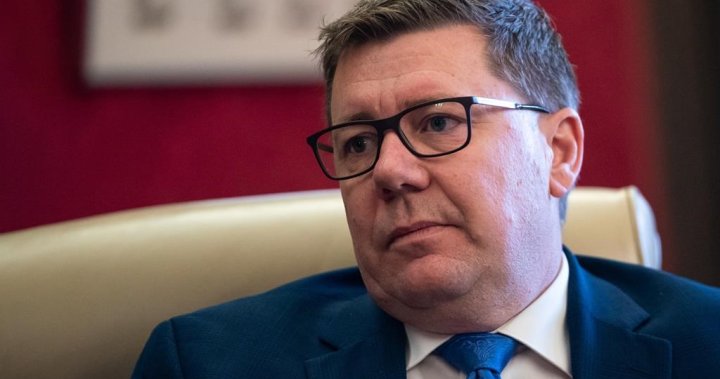The Alberta government is seeking intervenor status in a legal challenge against Saskatchewan’s Parents’ Bill of Rights, which prevents children under 16 from changing their names and pronouns in school without parental permission. Saskatchewan Premier Scott Moe’s government passed the bill using the notwithstanding clause to prevent Charter challenges, stating that it is about involving parents in their children’s lives. Human rights and advocacy groups criticized the law, saying it would endanger the lives of trans, non-binary, and gender-diverse youth. UR Pride, an LGBTQ2 group in Regina, filed a legal challenge arguing that the bill violates the rights of transgender youth to a safe school environment.
A Saskatchewan judge ruled that the court challenge could proceed, despite the government’s lawyers arguing that the law was in the best interest of gender-diverse children. The Alberta government has announced its intention to intervene in the case, arguing that the use of the notwithstanding clause should have prevented a review of the legislation’s constitutionality. Alberta also believes the review will impact parental rights across Canada and the application of the notwithstanding clause. Alberta and Saskatchewan both emphasize the importance of parental involvement in children’s lives and supporting families and children’s unique needs. Alberta Premier Danielle Smith has proposed legislation that would require parental notification and consent for name and pronoun changes for children 15 and younger and bans gender-affirming procedures for those under 17.
The joint statement from Alberta and Saskatchewan emphasizes the importance of respecting the parent-child relationship by notifying parents and involving them in decisions about their child’s name and pronouns at school. The statement also highlights the intention of Alberta to apply to intervene in Saskatchewan’s appeal of the UR Pride decision. The proposed legislation in Alberta, aiming to prevent youth from making life-changing and permanent decisions about their gender identity before they are old enough, has faced criticism from advocacy groups and the Alberta New Democrats. Egale Canada and Skipping Stone Foundation have stated that they will seek legal action if the legislation is passed. The debate surrounding parental involvement in children’s decisions about their gender identity continues to be a contentious issue in both Alberta and Saskatchewan.
Overall, the legal challenge against Saskatchewan’s Parents’ Bill of Rights highlights the ongoing debate about parental involvement in decisions about children’s gender identity. The Alberta government’s decision to seek intervenor status in the case underscores the importance of issues such as parental rights and the application of the notwithstanding clause in the Constitution. The proposed legislation in Alberta reflects a desire to protect children from making irreversible decisions about their gender identity at a young age. However, advocacy groups have raised concerns about the impact of such legislation on the rights of transgender and gender-diverse youth. The response to these legal challenges and proposed legislation will continue to shape the debate around parental involvement in children’s decisions about their gender identity in both Alberta and Saskatchewan.


